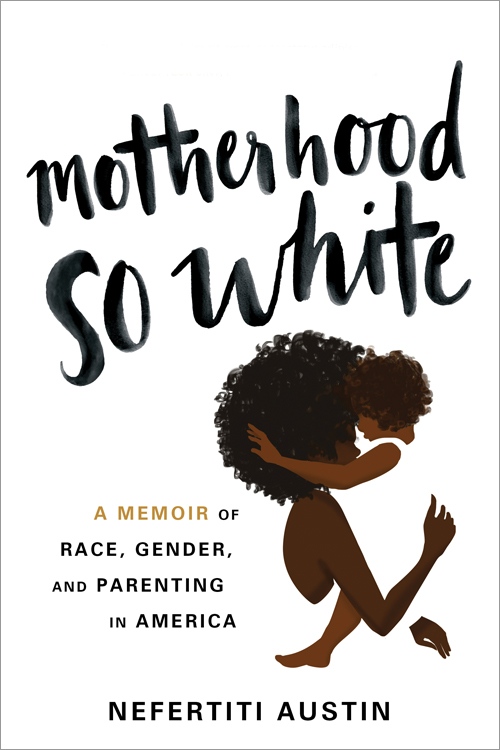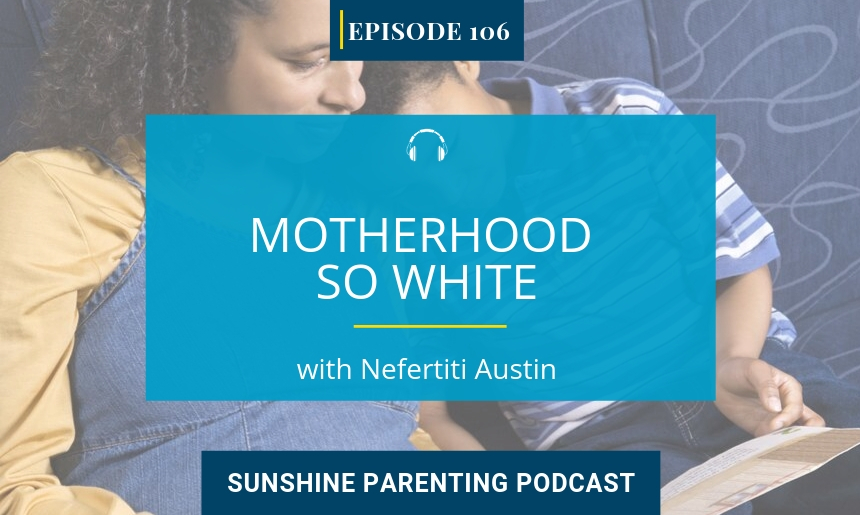
In this episode, I’m chatting with author Nefertiti Austin about her latest book, Motherhood So White: A Memoir of Race, Gender, and Parenting in America. We talk about her journey to adoption as a single Black woman and some of the issues faced by mothers of color and adoptive mothers. When she couldn’t find any books on the topic while going through the adoption process, she decided to write her own.
Big Ideas
- Fostered and adopted kids need to be given age-appropriate information from caregivers about their situations.
- Good communication is critical to helping kids understand what is going on around them.
- It’s important to never talk badly about a child’s biological parents, no matter the situation.
- Allow kids to try new things and leave the door open for them to pursue their interests.
- The term ‘crack babies’ is a misnomer; there is no evidence to support the idea that children exposed to substances in utero can’t thrive in a healthy, stable home environment. People should not be afraid to adopt a child who might be born addicted.
- Single mothers need to find positive male role models for their children. They can find support from men in the community through sports, church, friendships, and extended family.
- The Anti-Bias Education that has emerged in recent years is hopefully moving the needle, but the best way to help communities overcome racial prejudices and discrimination is for more families to connect with people who are different from them.
- If you are adopting a child of a different race, do your homework, understand their culture, and make friends with people of their race.
- It’s important to respect cultural differences.
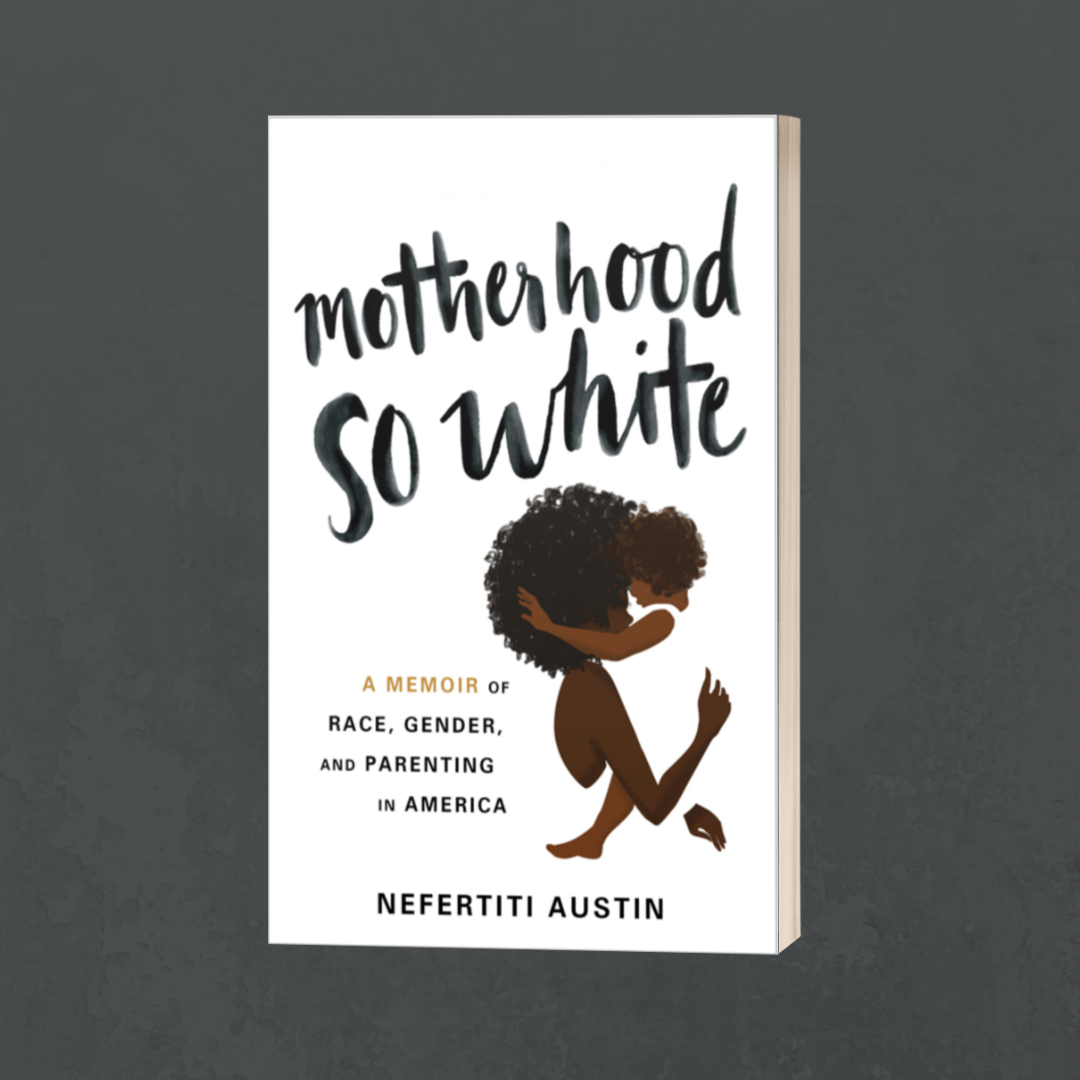
Quotes
Nefertiti: “I always wanted a family, wanted to be married and have children but as I got older, what was really important to me was helping a child in need.”
Audrey: “it seems like because of your experience, you understand that adopted kids need a lot of talking to and explaining about their situation.”
Nefertiti: “When I became a mom, I made a point to talk about adoption with my kids when they were very young. I started using the word ‘adoption’ and reading books to them so that it was really normalized.”
Nefertiti: “I make a point to let them know that I’m so happy that they chose me, that I love them, and this is just the best place for all of us.”
Nefertiti: “Your ‘parents’ are the people who provide a home for you, feed you, love you, help you with your homework, and help you kind of get on in the world.”
Audrey: “One of the reasons people choose adoption is to give kids the opportunity to have the family that all children deserve.”
Nefertiti: “I was looking for words, for information, for contexts to be able to share with people and it wasn’t there I had to create it for myself.”
Nefertiti: “The child’s trajectory turned on the environment; that seemed to be the biggest thing that was going to either help a child thrive or not.”
Nefertiti: “When you take a look at those families where drugs, violence, or neglect play a central role in a child’s life, if you remove those barriers and put them in a stable, loving household, then it is 180 degrees from what they first thought.”
Audrey: “You really had a plan to have a community in place to support your family. You had role models–men, aunts and uncles, and miscellaneous people–creating a support network.”
Nefertiti: “Any woman who is going to have a child of the opposite sex, whether you give birth or not, that child needs his community.”
Nefertiti: “Community is so important. However, wherever you can get it, whatever the people look like, it’s huge.”
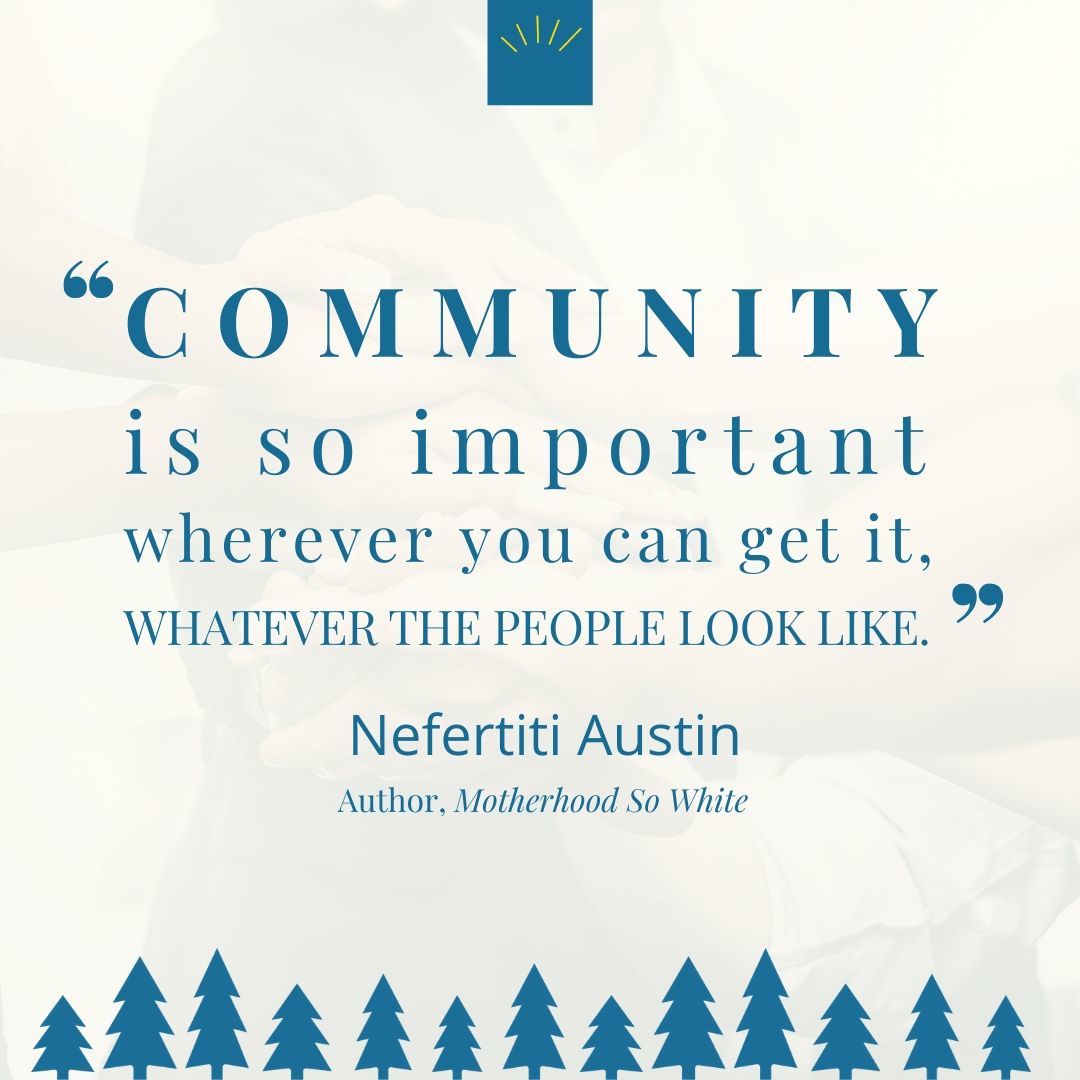
Audrey: “I think reading to kids and having them develop a love of reading is just so important because it opens up the world to them, whatever they decide to be interested in, they can then go out and find it.”
Audrey: “I really appreciate that you wrote this book because I think it’s not only going to be helpful for the people who are in your same circumstances, black mothers, adopting as single women, but also in the general adoption community.”
Nefertiti: “If a child can go to a loving, stable home, a home where the parents have really thought about what that’s going to mean (being in a mixed family), then they should go there.”
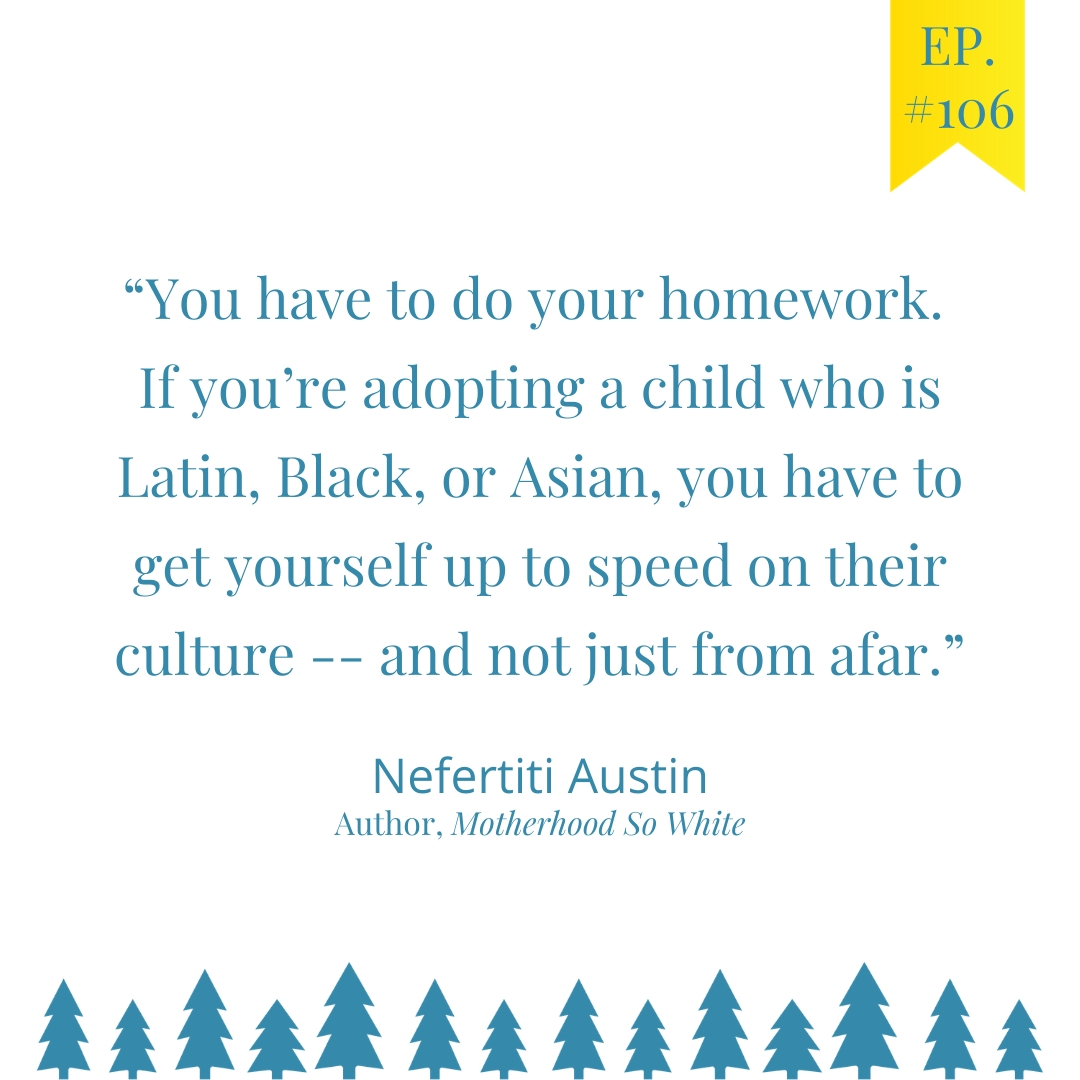
Nefertiti: “The most important thing is you have to do your homework. If you’re going to adopt a child who is Latin, Black, Asian, their culture is everything to them. You have to get yourself up to speed on their culture–and not just from afar.”
Nefertiti: “The best way to move the needle is through interpersonal relations. You can read anything, but you have an emotional distance from it. It doesn’t impact you and it’s hard to see your own bias. It’s hard to see your own privilege. It requires people sitting down with one another and listening to stories about each other.”
Nefertiti: “My book isn’t specifically for black mothers. There really is something for everyone. It’s important that all mothers come together—period. There is a racial hierarchy in motherhood and that needs to go away.”
Nefertiti: “I think moms have a lot of power and our voices collectively could make a huge difference. If we could come together and really support each other, our kids would feel a lot better about themselves, who they’re friends with and be less suspicious of the ‘other’.”
Audrey: “You can’t ‘other’ people you are friends with.”
Resources/Books Mentioned
Bryan Stevenson’s Just Mercy: A Story of Justice and Redemption
Angie Thomas’ On The Come Up and The Hate U Give
About Nefertiti

Nefertiti Austin
Author and memoirist, Nefertiti Austin writes about the erasure of diverse voices in motherhood. Her work around this topic has been short-listed for literary awards and appeared in the “Huffington Post”, MUTHA, “The Establishment”, matermea.com, Essence.com, “Adoptive Families” magazine, PBS SoCal’s “To Foster Change” and PBS Parents. She was the subject of an article on race and adoption in “The Atlantic” and appeared on “HuffPost Live” and “One Bad Mother”, where she shared her journey to adoption as a single Black woman.
Nefertiti’s expertise stems from firsthand experience and degrees in U.S. History and African-American Studies. Nefertiti is a former Certified PS-MAPP Trainer, where she co-led classes for participants wanting to attain a license to foster and/or adopt children from the foster care system. An alumna of Breadloaf Writers’ Conference and VONA, her first two novels, Eternity and Abandon, helped usher in the Black Romance genre in the mid-1990s.
Contact Nefertiti
Instagram.com/iamnefertitiaustin
If you enjoyed this podcast, listen to:
Episode 55: Raising Kids who Love to Read with Anne Driscoll
Episode 61: National Adoption Awareness Month
Episode 93: Teaching Healthy Relationship Skills to Improve Lives
Three Strategies for Raising Kids Who Become Thriving Adults

